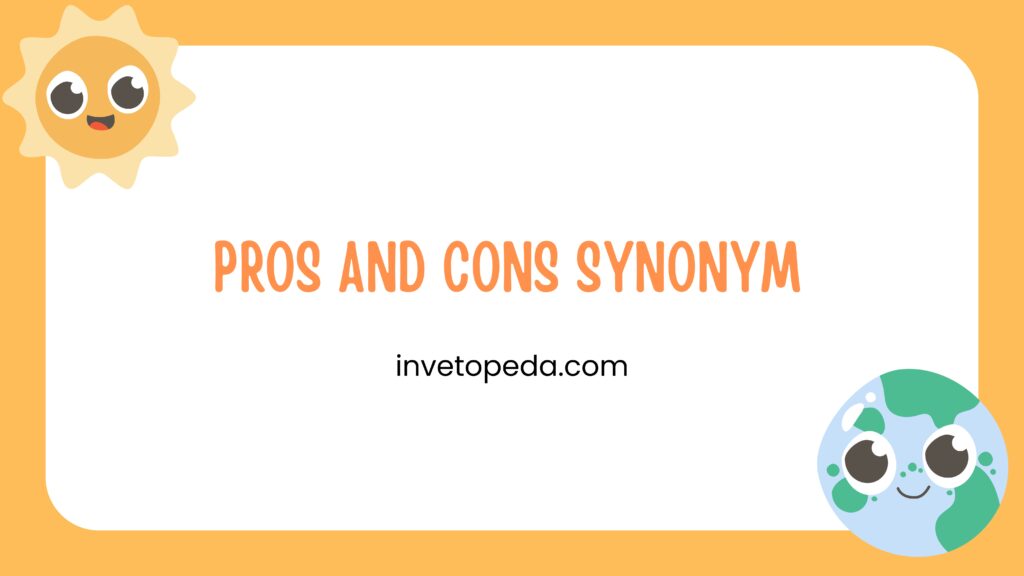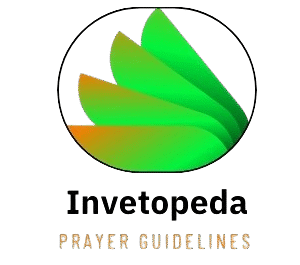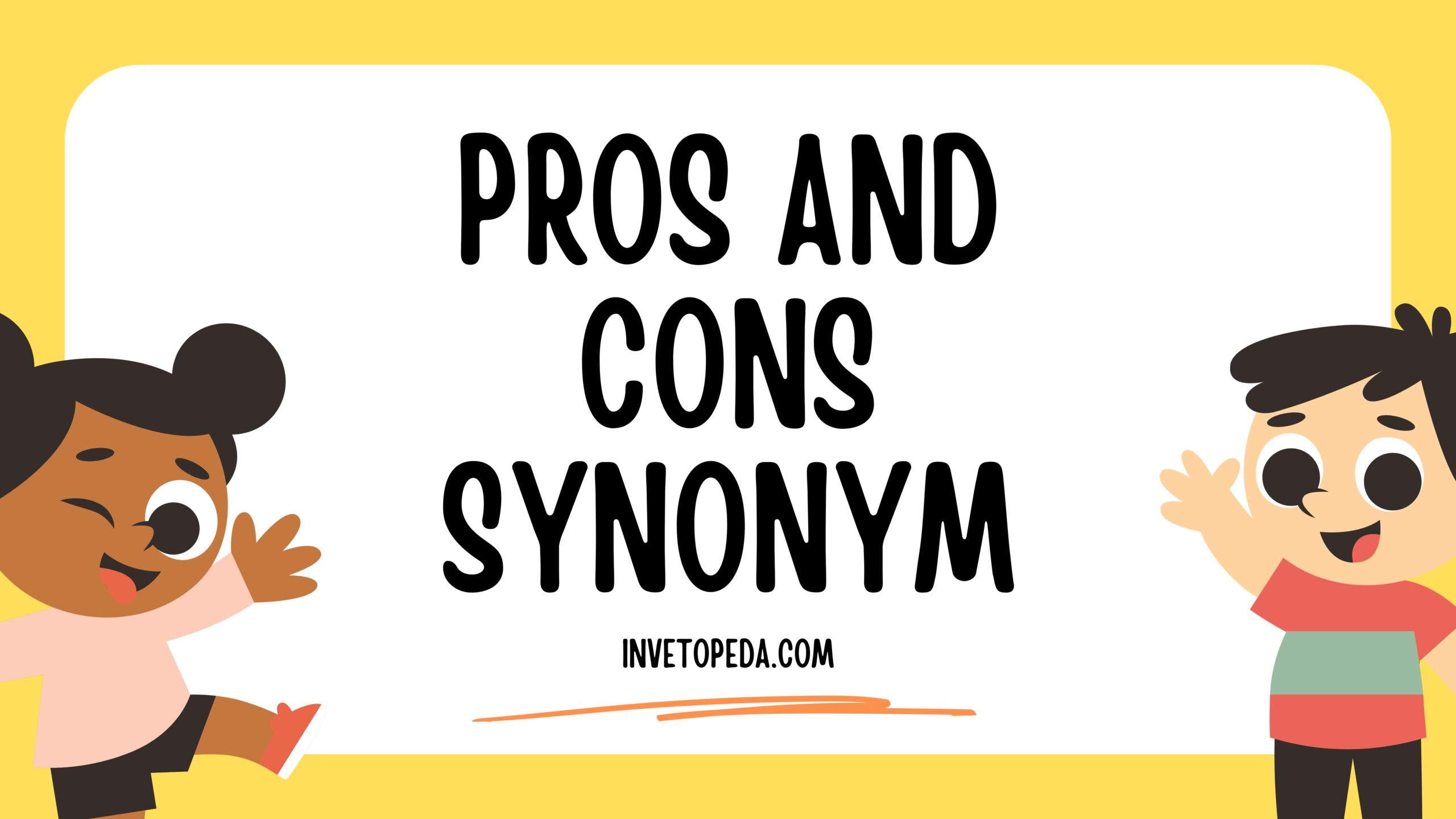Introduction to the Phrase “Pros and Cons”
The phrase “pros and cons” is one of the most popular phrases that focus on the drawbacks and benefits of an activity like a decision, or object. The word originates from Latin expressions pro, which is a reference to pro which means as opposed to the word contra, meaning opposite to. In modern English phrase is an accepted standard in informal as well as professional discussions..
The understanding of the definitions and alternatives that have “Pros and Cons Synonym” helps writers, as well as professional students and scholars to communicate their ideas with ease and accuracy. If you’re creating an essay, an email or a paper, understanding the proper terminology that refer to “pros and cons” can help develop the quality of your work.
Why Use Synonyms for ‘Pros and Cons’?
Synonyms to refer to “pros and cons” can:
- Improve the readability through reducing repetition
- Increases the precision in accordance with the context
- Maintain the same style required to write academically, professionally or informal writing
- Enhance your vocabulary depth and richness to your dictionary
for content creation Using various terms to define Pros and Cons Synonym as well as assists with creating searching optimize (SEO) by including diverse, yet relevant terms.
Common Synonyms for “Pros and Cons”
These are the terms that are most commonly used and widely accepted phrases that speak to “pros and cons” All of them are suitable to different situations:
Advantages and Disadvantages
It is the most exact word and is used for the fields of business, education as well as in formal writing.
Strengths and Weaknesses
It’s ideal for the analysis of strategies, individuals or systems. It is particularly useful in the evaluation of strategies, individuals and systems. This is especially the case for evaluations of performance and SWOT studies.
Benefits and Drawbacks
The option is becoming increasingly sought-after to use in market analysis and marketing and healthcare in weighing the positives and negatives.
Upsides and Downsides
Contemporary and casual, often used in blogs, podcasts and chats..
Merits and Demerits
more formal and frequently found often in legal, academic and official documents.
Boons and Banes
Literary or philosophical. The term is rarely used in everyday debate, but it is useful when applied to spoken speeches or art pieces.
Contextual Use of These Synonyms
Every synonym is a shining light in different contexts when writing, or when speaking. This is how they perform in various contexts:
- Advantages and Disadvantages Business Reports prefer the terms advantages and disadvantages or benefits and drawbacks to be more useful.
- Scholarly writing: The system is scholarly writing in the form of a merit and/or demerit or strengths and weaknesses.
- Informal English: Upsides and downsides The term upsides and downsides fit well in casual conversations, or even the emails.
- Creative Writing: “Boons and banes” gives dramatic power and conveys the feeling of depth.
- Documents that are technical Make use of “advantages and disadvantages” for an clear understanding.
By using the right benefits and negatives of your wording improves not only the tone of your message, but the significance of the message.
Examples in Sentences
The capability to comprehend the meaning of these terms is more evident once you understand how they are utilized. Below are some examples of sentences:
- Benefits and drawbacks “The report detailed the benefits and disadvantages of remote-based work for a company. “
- The strengths and weaknesses “During an interview he spoke about his weaknesses and strengths openly. “
- Drawbacks and advantages “Let’s examine the advantages as well as the drawbacks to implementing AI for education. “
- Both positives and negatives: “The upsides and downsides that come with living in a huge city is worth a look. “
- Merits and detriments: “The academic journal explores the benefits and drawbacks of this change in policy. “
- Benefits as well as Banes: “Technology, while a boon, as well as a threat has dramatically altered the lives of humans. “
Choosing the Right Synonym: Tone, Audience, and Purpose
The word you should define “pros and cons” depends on three fundamental factors:
- Tone – Is it formal informal, neutral, or casual?
- Use the words merits and demerits or advantages and disadvantages in official writing.
- Say upsides and downsides or boons and banes in light or informal tones.
- Listeners What are viewers or listeners?
- The reader of technical information will be able comprehend: “benefits and drawbacks”
- Academic users are more likely to “strengths and weaknesses”
- The goal What is the purpose in this communication?
- Persuasive writing can benefit by the emotion of words like “boons and banes”
- Analytical writing needs pair of objectives, such as “advantages and disadvantages”
Lesser-Known or Creative Alternatives
Alongside the terms that are typically found in the dictionary there are a variety of obscure, yet equally effective options to “pros and cons”:
- Trade-offs are a typical aspect of economic or strategic analysis “There are trade-offs that go into any option. “
- Benefits and costs widely employed within the field of finance, economics and writing the policy documents. “We need to analyze the cost and benefits prior to deciding. “
- Positives and Negatives Ideal for informal or formal writing. “Let’s take a look at the benefits as well as the negatives of this style. “
- Plus Points, and Points Minus It’s a informal language that is used in daily conversations. “What do you think are the positive and minuses of this software? “
The semantic differences increase the vocabulary and reveal the diversity of words used in writing.
Final Thought: Pros and Cons Synonym
Pros and Cons Synonym are not the only thing that we should consider. When you write your paper, draw a draft or even you will make a conversational situation, using the right phrase to explain the topic of your paper, (pros and cons) will help you get your message to more people as well as sounds like the manner in which your audience speaks.
Even in the case of advantages and disadvantages, even to boons and banes there are the subtle differences, in the words, in its quality, in its importance. In case you can master the right expressions and effectively, you will be able both to diversify your vocabulary and to improve your polytropic status in writing.

FAQs About Pros and Cons Synonym
1: Which is the best term to define “pros and cons” in formal writing?
“Advantages and disadvantages” or “merits and demerits” are the most suitable for formal writing for academic documents report, legal documents and other reports.
2: Should I use the an use or use “merits and demerits” in the course of my daily conversation?
This is possible, however it’s not more formal. In everyday conversations, “upsides and downsides” or “positives and negatives” are more appropriate.
3: Do you have any sector-specific solutions to “pros and cons”?
For the area of economics and public policy, “costs and benefits” or “trade-offs” are often preferred.
4: Do this phrase have an equivalent meaning?
They convey a concept which aims to contrast two perspectives the accent, meaning, and use differ depending on their context.
5: Do I need to use a mixture of synonyms within the same text and stick to the same word?
Use varied synonyms to avoid repetition and maintain an identical tone and clarity.

